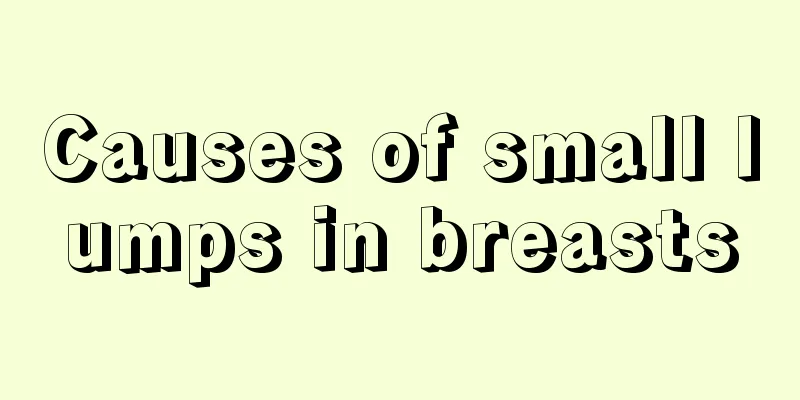Pelvic effusion, abdominal distension and pain

|
Pelvic effusion is a relatively common gynecological disease in women. After the occurrence of pelvic effusion, there are many symptoms, which often cause women to experience lower abdominal pain. At this time, you should go to the hospital for examination and treatment in time, such as intravenous antibiotic treatment. In addition, you can usually use some physical therapy methods to treat it, such as massage and hot compress to relieve the symptoms. Pelvic effusion, abdominal distension and pain Many times, pelvic effusion causes lower abdominal pain, mainly because the abdomen becomes inflamed when there is pelvic effusion, so the patient needs to control the inflammation through intravenous drips, which generally contain some antibiotics. At the same time, patients need to use some diuretic drugs to help drain the accumulated fluid. If the patient's illness is not very serious, he or she can often recover through medication. Patients who experience lower abdominal pain due to pelvic effusion may consider physical therapy to restore their health. Under the guidance of a doctor, patients can use infrared, ultrasonic irradiation and other methods to promote blood circulation and help discharge the accumulated fluid. It can help the patient's body absorb inflammation and effectively eliminate it. Patients can also relieve pain through massage, hot compress, and acupressure. Some patients may need surgical treatment because of pelvic effusion and severe lower abdominal pain. Pelvic effusion may be caused by tumors or cancer cells, so surgery is needed to remove the diseased cells and excess tumors in the patient's body. After surgery, patients should pay attention to eating a light diet and getting adequate rest to avoid tearing the wound. Clinical manifestations 1. Feeling of falling, pain in the lower abdomen and lumbar sacral region The main symptoms are a feeling of heaviness and pain in the lower abdomen on one or both sides. Scar adhesions and pelvic congestion caused by chronic inflammation lead to lower abdominal distension, pain, and lumbar and sacral soreness. 2. Decreased immunity The systemic symptoms of pelvic effusion are mostly not obvious, and sometimes there may be low fever and fatigue. Some patients with a long course of illness may have symptoms of neurasthenia, such as lack of energy, general discomfort, insomnia, etc. When the patient's resistance is poor, acute or subacute attacks are likely to occur. 3. Menstrual disorders Patients with concurrent pelvic congestion may have increased menstruation; when ovarian function is damaged, there may be menstrual disorders; when the fallopian tubes are blocked by adhesions, it may cause female infertility. 4. Infertility If pelvic inflammatory disease causes blockage of the fallopian tubes, infertility will occur. Clinical examination will reveal that the patient's uterus is retroverted, uterine activity is restricted, or adhesions have occurred. |
<<: What medicine is used for pelvic effusion anus
>>: Will pelvic adhesions recur after surgery?
Recommend
What causes pain in the right lower abdomen during menstruation?
There are many things we need to pay attention to...
Ovarian cyst positive
During the hospital examination, if the ovarian c...
Will lying on your side put pressure on the fetus?
Sleeping is a happy and joyful thing. We can slee...
Which bra cup is smaller, A cup, B cup or C cup?
For many girls who have just touched bras, they m...
Blood in the vagina means your period is coming
In life, many people often regard leucorrhea blee...
Zoonotic disease with a mortality rate of 20-40% - human infection with Streptococcus suis
One day, Lao Zhang, a farmer who had raised pigs ...
If you don’t want cerebral hemorrhage due to high blood pressure, you should eat less of these 4 kinds of food
Hypertension is very common in our daily lives. I...
eMarketer: Key digital media trends for 2012
The Key Digital Trends for 2012 report, jointly r...
Four Misconceptions about Morning Exercise
Health preservation and disease prevention must c...
As of March 2024, Apple's sales increased by 33% year-on-year to a record high of nearly US$8 billion
Recently, according to media reports, Apple's...
Live broadcast | Zhai Xuan, Children's Hospital Affiliated to Chongqing Medical University: Surgical treatment of refractory epilepsy in children
Epilepsy is one of the common diseases of the ped...
Do you have the habit of "washing your butt"? Don't be shy, it's a good habit...
We wash our faces every day, and most people soak...
Can I have sex after my aunt has been gone for a few days?
Menstruation is a sensitive topic for women. Afte...
Tinnitus is not only an ear problem, but may also be caused by intracranial blood vessel problems.
Author: Tong Xu, deputy chief physician, Beijing ...
Why does homemade shaqima fall apart? What are the ingredients for making shaqima?
Shaqima is also a kind of food with unique charac...









